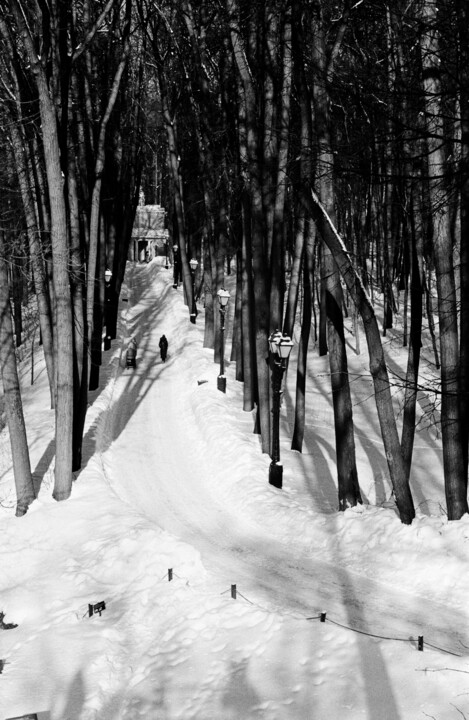
Road to the fairy tale (2024) Fotografia autorstwa Ekaterina Kastalskaya
Kup licencję na wykorzystanie tego obrazu w swojej witrynie internetowej, komunikacji lub sprzedaży produktów pochodnych.
Usage: Licencja sieciowa
| 976 px | ||

|
1500 px |
| Wymiary pliku (px) | 976x1500 |
| Użyj na całym świecie | Tak |
| Korzystaj z opcji multi-support | Tak |
| Używaj na dowolnym nośniku | Tak |
| Prawo odsprzedaży | Nie |
| Maksymalna liczba odbitek | 0 (Zero) |
| Produkty przeznaczone do sprzedaży | Nie |
Pobierz natychmiast po zakupie
Ten obraz jest dostępny do pobrania z licencją: możesz je pobrać w dowolnym momencie.
Ograniczenia
Wszystkie obrazy na ArtMajeur są oryginalnymi dziełami sztuki stworzonymi przez artystów, wszystkie prawa są ściśle zastrzeżone. Uzyskanie licencji daje prawo do wykorzystania lub wykorzystania obrazu na warunkach licencji. Możliwe są drobne modyfikacje, takie jak zmiana wymiarów lub ostrości obrazu tak, żeby obraz optymalnie wpasował się do danego projektu, jednak zabronione jest dokonywanie jakichkolwiek modyfikacji, które mogłyby zaszkodzić oryginalnej pracy - zwłaszcza jej integralności (niedopuszczalne są zmiany kształtów, zniekształcenia, odcinanie części pracy, zniekształcanie, zmiana kolorów, dodawanie elementów itd.). Radykalne zmiany obrazu są możliwe jedynie po otrzymaniu pisemnej zgody artysty.
Licencje niestandardowe
Jeśli Twoje użytkowanie danego obrazu nie jest objęte standardowymi licencjami, skontaktuj się z nami na potrzeby niestandardowej licencji.
Bank dzieł sztuki-
Oryginalna praca
Fotografia,
Fotografia filmowa
/
Fotografia nie manipulowana
- Wymiary Wymiary są dostępne na życzenie
- Stan grafiki Grafika jest w idealnym stanie!
- Kategorie Figuratywna Architektura
It was an unusually sunny day for the last month of winter. On Sunday there are traditionally many people in the park, despite the frost. Muscovites and tourists are walking and skiing.
The photograph was shot on SFL T-42 ISO 400 black and white negative film. This is Tasma Type-42 aerial film with a large amount of silver.
In this photo we can see the Milovida Pavilion ("Milovidova Gallery") — one of the best constructions of the Tsaritsyn Park of the early 19th century.
It was built in 1803-1804, presumably according to the project of architect Ivan Egotov — a pupil of Vasily Bazhenov. The pavilion stands in the most picturesque part of the Tsaritsyn Park. In the 1800s its walls offered a magnificent view of the bay of the Upper Tsaritsyn pond with an artificial island — hence the "pastoral" name.
The pavilion is a passageway arched gallery with four small corner rooms ("offices") for visitors' rest. In the early 19th century Tsaritsyno became a popular place for pleasure walks and picnics. In this connection some buildings of the ensemble — including pavilions — were converted into coffee houses and entertainment buildings.
From the inventory of I. Zabelin 1825: "The Milovid's Gallery is stone with a wooden plastered partition at the top, covered with iron; on its top there are three statues, four busts, two vases, two swinks, two dolphins at the porch; inside there are sixteen large columns and eight small ones, plastered on wood. On each side there are two rooms with oak doors with latches, and in each two windows with acorns under paint; in the middle of it there are large busts of white marble on the same pedestals on four tubs of white stone. In the above mentioned Milovida there are eighteen chairs with sharpened legs under paint with wicker seats made of ropes covered with yellow paint; the same under wild paint with seats made of reeds - eight; large folding oak tables - three".
However, already in 1838, the caretaker of the village of Tsaritsyno called the pavilion "dilapidated" in his report and closed it. Many sculptures were lost and destroyed by time. In 1870-1880s. "Milovida" (like other pavilions) was adapted to a tea house. A brass band played in the neighboring grove.
Up to 1941 the pavilion was repeatedly repaired. Workers plastered the walls and renewed the wooden structures. In July 1941 a German airplane bomb blast damaged the pavilion's finish. Crumbled cornices. Bas-reliefs were destroyed. The painting disappeared.
In the 1960s the pavilion was restored again. But in 1992 there was a fire - all the wooden structures were destroyed. Only after a large-scale reconstruction in 2000-2007. "Milovida" was returned to the appearance of the early XIX century. The picturesque and sculptural decoration was partially restored. The corner offices now house the guards of the Tsaritsyno Park-Museum.
Powiązane tematy
Black And White PhotoAnalog Film PhotoWinter DayLight And ShadowsHistorical Architecture
Ekaterina began photographing as a teenager at the age of 14. And of course, it was analog photography. Shooting on a Zenith, playing with exposure, developing and hand printing.
In the 2000's came the era of digital photography, and from the middle of the decade Ekaterina began to engage in reportage photography.
In 2016, she returned to analog photography again.
Now in her work she explores association as a way to connect pictures of the surrounding reality with sensory experience. Her photographs reference books she has read, movies she has watched, music videos, works of art, and simple stories that happen in everyone's life.
The genre of portraiture attracts her with its ability to show the human gaze and real emotion, be it joy, peace, tension, dramatic strife in the soul.
Ekaterina prefers to capture the moment when shooting and takes a film camera even on a simple walk in the park.
-
Obywatelstwo:
ROSJA

- Data urodzenia : 1981
- Domeny artystyczne:
- Grupy: Rosyjscy Artyści Współcześni







